Audi, the German luxury car manufacturer, has been known for its innovative technology and high-quality performance. However, with advanced technology comes the possibility of technical issues.
Audi owners have reported one such issue: the “Stabilization Control Fault.” This fault, also known as the “ESC Fault,” has caused concern among Audi drivers as it affects the stability and safety of their vehicles.
Here, we will delve deeper into the Audi Stabilization Control Fault, its potential causes, and how it can be detected and addressed. We will also discuss the steps that Audi is taking to address this issue and how owners can ensure the safety of their vehicles and their own.
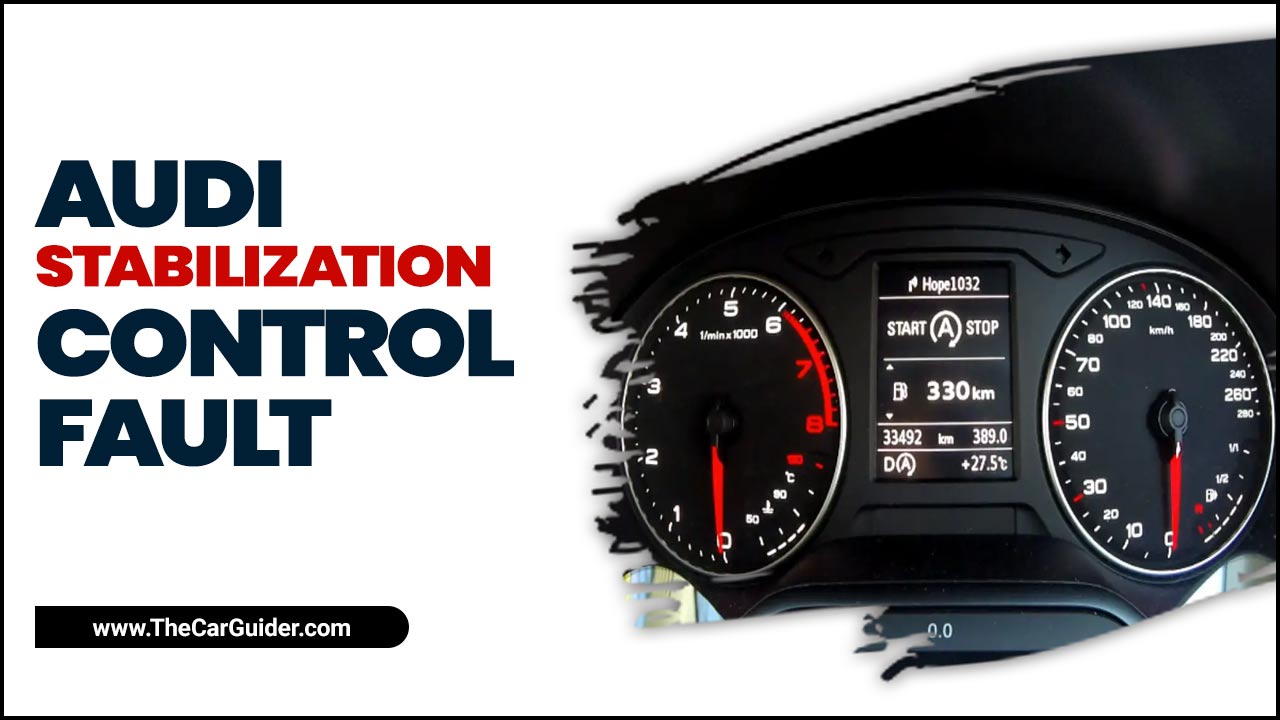
Key Takeaways:
- Audi’s Stability Control (ESC) enhances safety by monitoring wheel speeds, steering angle, and traction.
- “ESC Fault” can be triggered by issues with sensors, wiring, or ABS.
- Symptoms include unusual steering, braking issues, or loss of traction.
- Professional diagnosis is crucial for fixing faults and maintaining vehicle safety.
What Is Audi’s Stability Control?
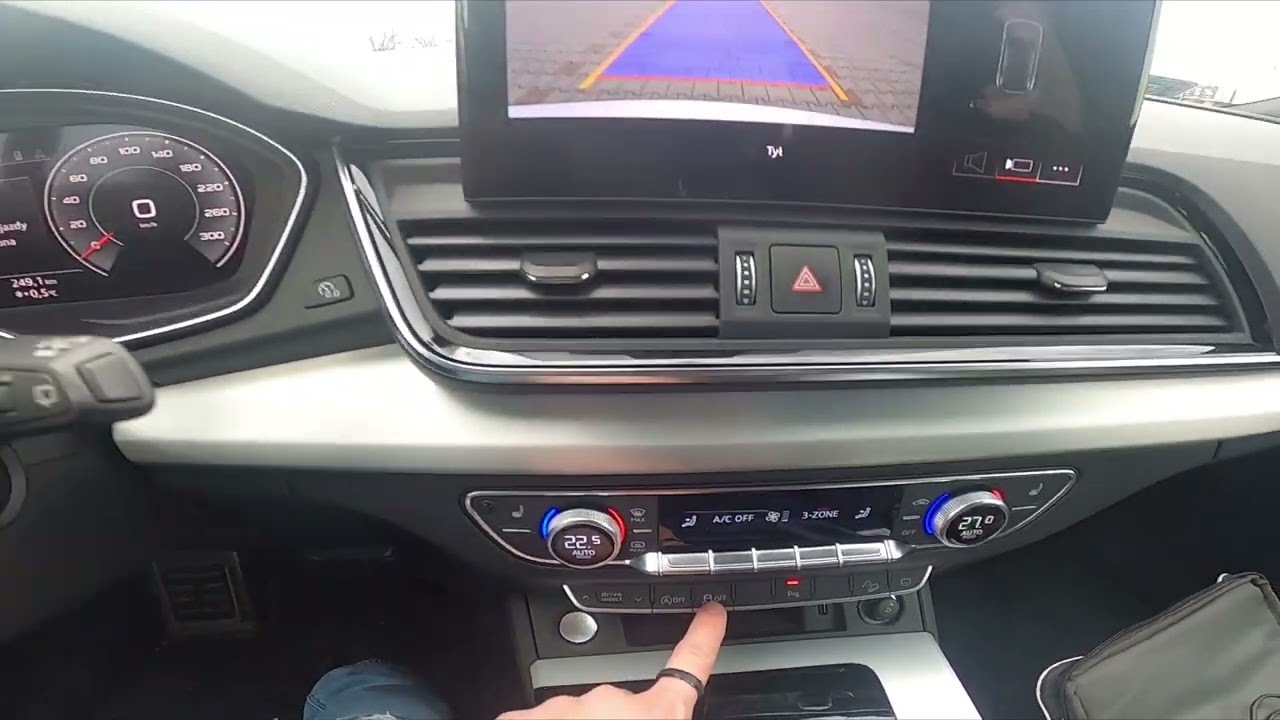
Audi’s stability control system, commonly known as ESC (Electronic Stability Control) or ESP (Electronic Stability Program), is a crucial safety feature designed to enhance vehicle stability and prevent accidents by automatically controlling the vehicle’s braking and engine power.
This system continuously monitors the vehicle’s speed and steering wheel angle. And individual wheel speeds to detect any loss of traction or skidding. If the system detects a potential loss of control, it intervenes by applying individual wheel brakes and adjusting engine power to help the driver maintain vehicle control.
Audi’s advanced stability control technology improves handling and cornering performance. It helps drivers navigate challenging road conditions, such as slippery surfaces or sudden maneuvers, ensuring a safer driving experience for Audi owners.
By combining precision engineering and intelligent software algorithms, Audi’s stability control system sets a new vehicle safety and stability standard, offering drivers peace of mind and confidence.
Audi “Stability Control Fault” Causes
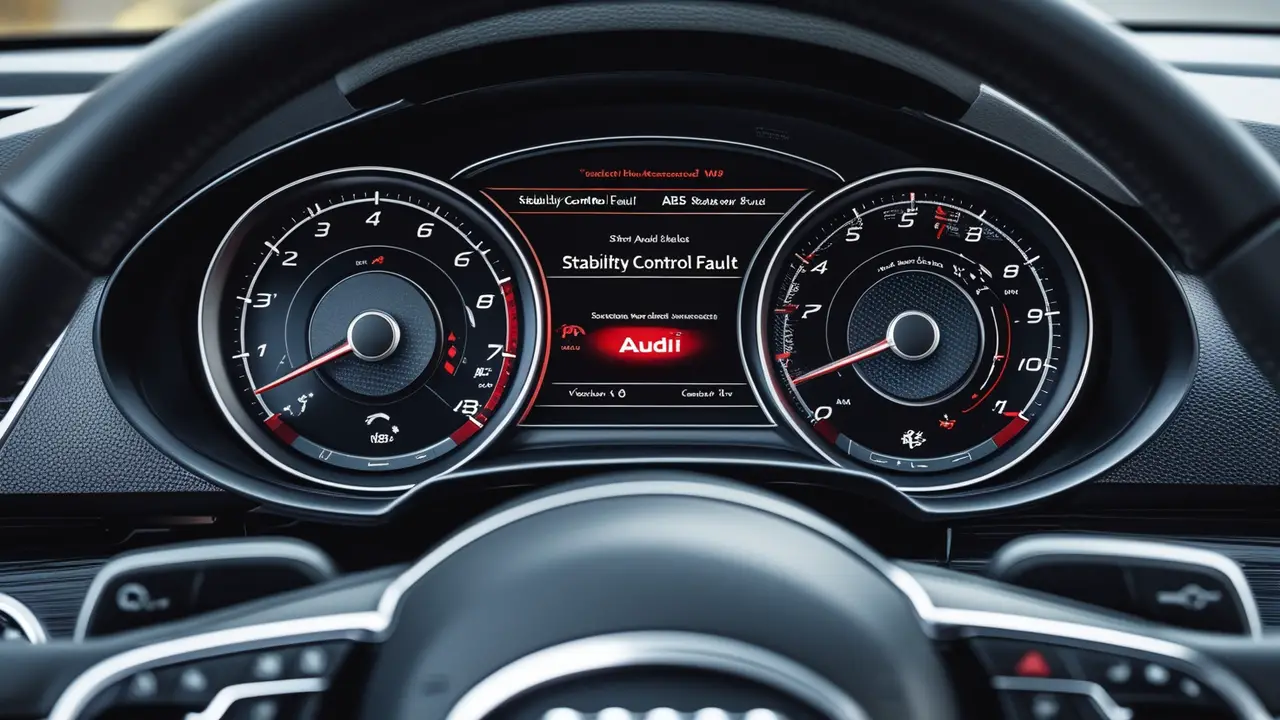
The “Stability Control Fault” message in Audi vehicles can be caused by a variety of factors, including:
- Issues with the vehicle’s ABS (anti lock brake system) sensors
- Problems with the vehicle’s wheel speed sensors
- Malfunctions in the vehicle’s steering angle sensor
- Faulty wiring or connections related to the stability control system
It is important to have the vehicle diagnosed by a qualified mechanic to accurately determine the cause of the “Stability Control Fault” message and address any underlying issues promptly to ensure safe driving conditions.
Symptoms And Signs Of Audi Stabilization Control Fault
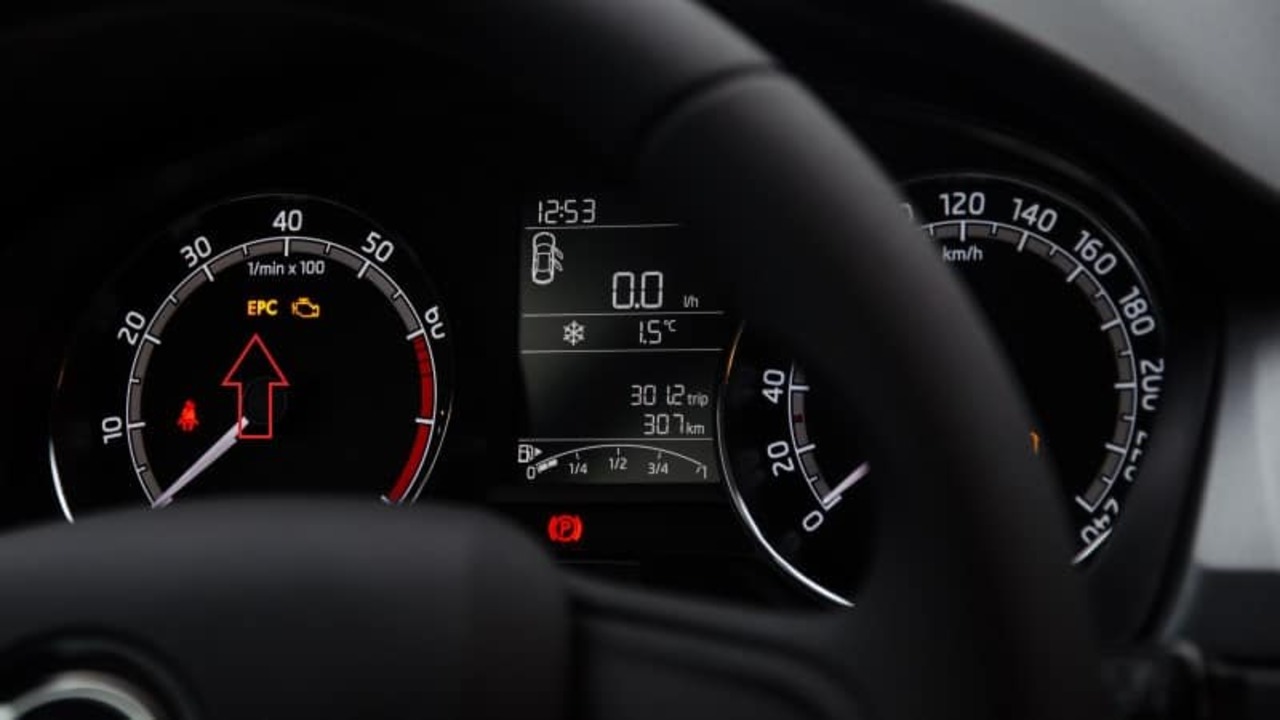
- Unusual steering behavior
- ABS system malfunction
- Strange noises from the wheel area
- Difficulty in maintaining control of the vehicle
- Warning light: A stabilization control warning light illuminates the dashboard.
- Loss of traction: Wheels may lose traction during acceleration or cornering.
- Reduced stability: The vehicle may feel unstable or unpredictable while driving.
- Increased stopping distance: Braking performance may be affected, leading to longer stopping distances.
Diagnosing And Fixing Audi Stabilization Control Fault
For such issues, it is recommended to consult a professional mechanic or authorized service center to diagnose and fix Audi stabilization control faults to ensure safety and proper resolution of the problem.
TPMS Sensors Functional Replacement to Fix ESC Problem

- Visit a qualified workshop specializing in automotive diagnostics and repairs.
- Use Ross Tech or similar diagnostic software to assess TPMS sensor functionality.
- Identify malfunctioning TPMS sensors causing ESC issues.
- Opt for a functional replacement of the faulty TPMS sensors.
- Ensure compatibility of replacement sensors with your vehicle’s make and model.
- Conduct a dynamic stability control calibration post-sensor replacement.
- Perform thorough testing of ESC system functionality in a controlled environment like a test lane.
- Monitor ESC performance regularly to ensure the issue has been resolved effectively.
Fixing ABS (Anti-lock Braking System) sensors
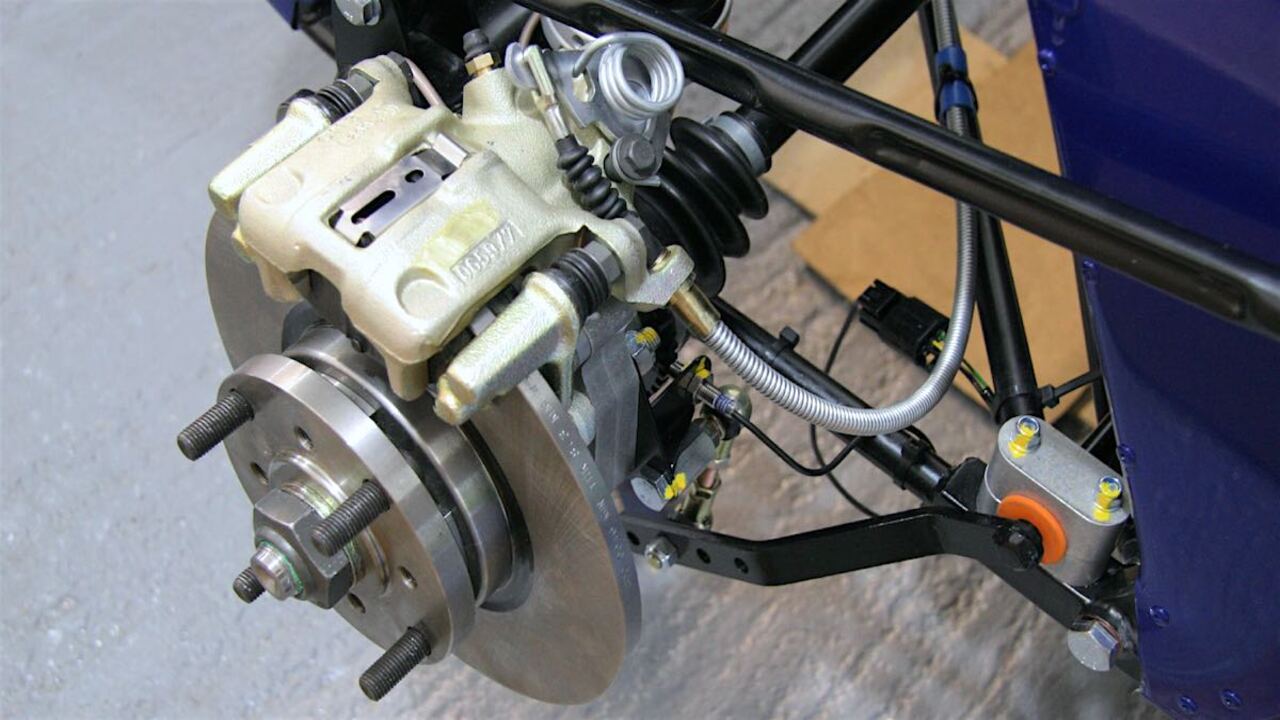
To Fix the ABS sensor system, follow these steps:
- Diagnose ABS sensor issues using diagnostic tools compatible with Audi Group vehicles.
- Check the MAF sensor to ensure proper airflow, as it can affect ABS functionality.
- Inspect ABS sensors for damage or contamination, particularly after hard braking incidents.
- Clean ABS sensors to remove dirt, debris, or brake dust that may interfere with their operation.
- Test ABS sensors using a multimeter to verify their electrical continuity and signal output.
- Replace malfunctioning ABS sensors if cleaning and testing fail to resolve the issue.
- Ensure proper installation of the new sensors and secure them tightly to prevent future issues.
- Conduct a road test, paying attention to the brake pedal feel and ABS engagement during braking maneuvers.
- Monitor ABS warning lights on the dashboard, as they may indicate ongoing sensor issues that need further attention.
Diagnostic Tools And Procedures
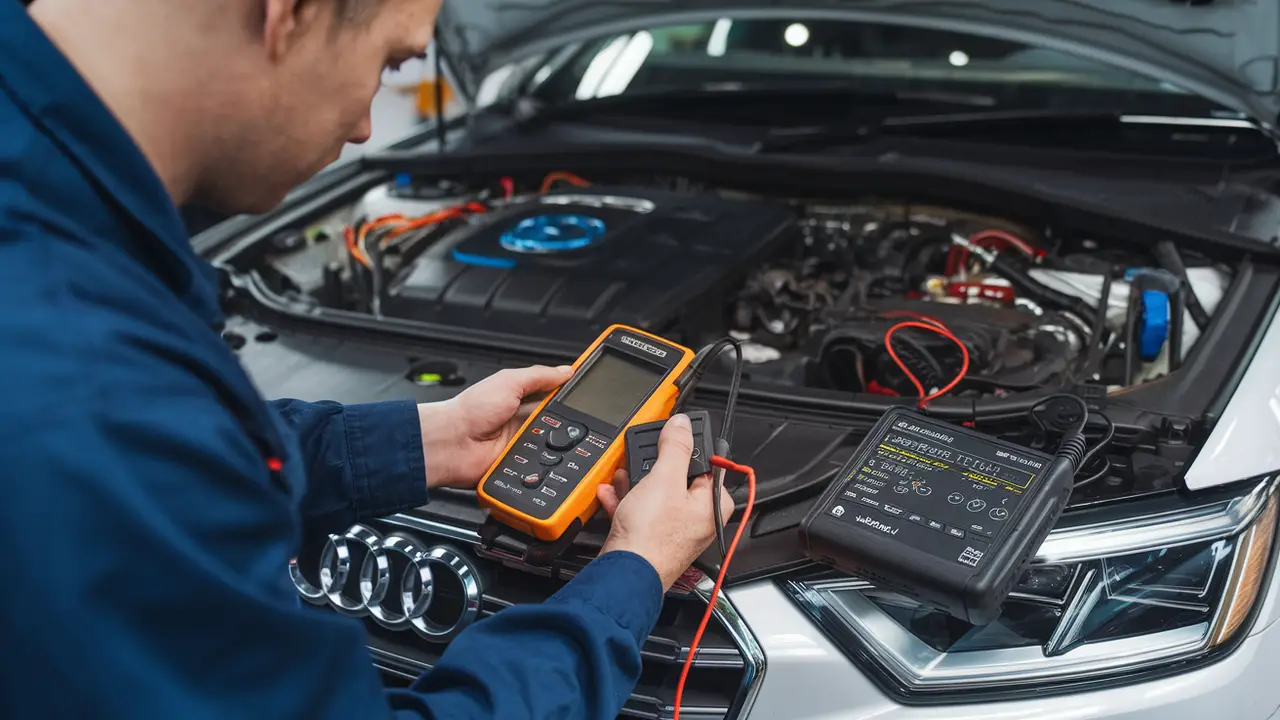
When diagnosing an Audi Stabilization Control fault, utilizing diagnostic tools is crucial for pinpointing the underlying issue accurately.
- Diagnostic tools such as OBD scanners, VCDS (VAG-COM Diagnostic System), and multimeters can help scan for error codes, check sensor readings, and test electronic components, respectively.
- These tools enable mechanics to identify the specific problem areas within the stabilization control system, leading to a more efficient and effective repair process.
Here are some common procedures:
- Check for error codes using a diagnostic tool: To scan the vehicle’s system for error codes related to the stabilization control fault.
- Inspect wheel speed sensors: Check the condition of the wheel speed sensors to ensure they function properly and are clean from debris or damage.
- Verify ABS module functionality: Test the ABS module to see if it sends and receives signals correctly, as issues with this component can trigger stabilization control faults.
- Examine wiring and connections: Inspect the wiring and connections related to the stabilization control system for any loose connections, frayed wires, or corrosion that may be causing issues.
Common Repairs And Solutions Options
When diagnosing and fixing an Audi Stabilization Control Fault, there are several common repairs and solutions options to consider:
- Check the sensors: Issues with the sensors can often trigger stabilization control faults. Make sure the sensors are clean and properly connected.
- Inspect the wiring harness: Damaged or faulty wiring can cause stability control problems. Check the wiring harness for any signs of wear or damage.
- Test the ABS module: The ABS module plays a crucial role in stabilizing your Audi. If it is malfunctioning, it may need to be repaired or replaced.
- Verify wheel speed sensor functionality: The wheel speed sensors provide important data for the stability control system. Ensure they are functioning correctly to prevent faults.
- Consult a professional: If you cannot diagnose or fix the issue independently, it is advisable to seek assistance from a qualified mechanic or Audi dealership for further inspection and repair.
When To Seek Professional Help
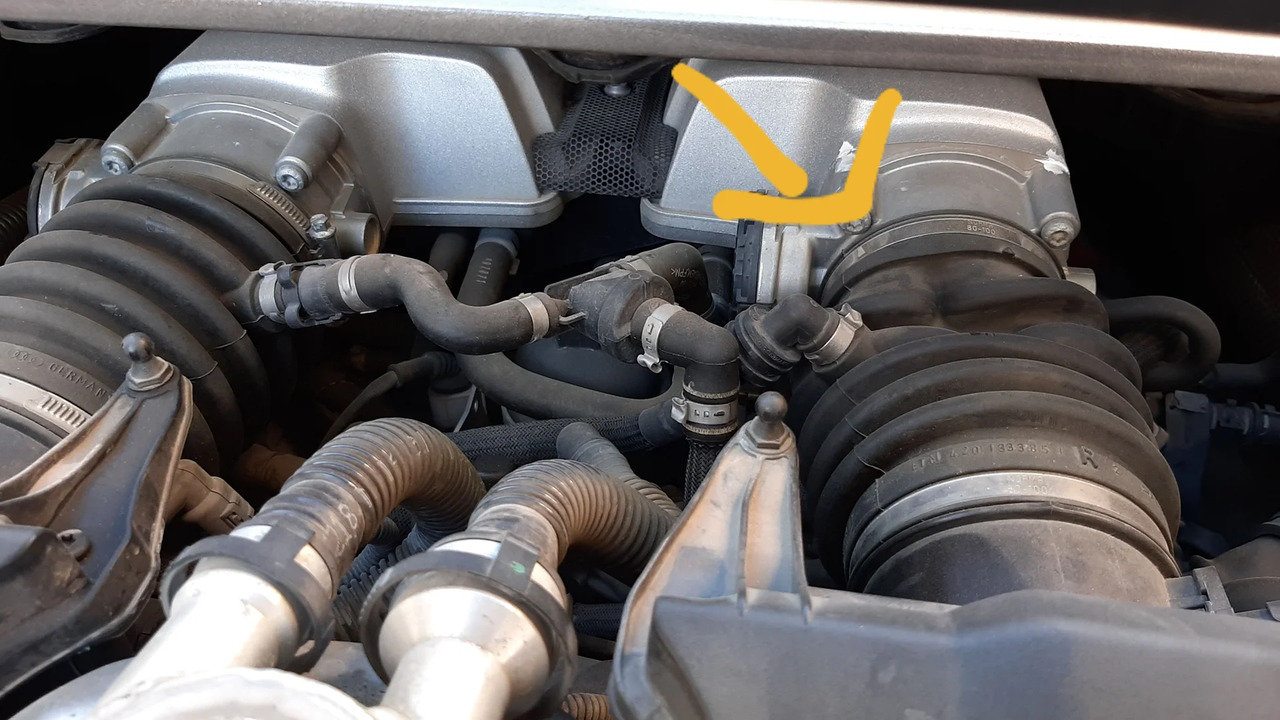
If you are experiencing an Audi Stabilization Control Fault, seeking professional help promptly to address the issue is crucial. Seek professional assistance under the following circumstances:
- When the warning light indicates the stability control fault, it remains illuminated even after restarting the vehicle.
- If you notice unusual noises or vibrations while driving, especially when turning or braking.
- If there is a noticeable difference in how your Audi handles or performs on the road.
Promptly seeking professional help can help diagnose and resolve any underlying issues with the stabilization control system of your Audi, ensuring your safety and the optimal performance of your vehicle.
Tips For Avoiding Stabilization Control Faults
any organization must prioritize proactive measures. Stabilization control faults can significantly impact the performance and safety of critical systems, leading to potential downtime, operational disruptions, and even safety hazards. Organizations should implement a comprehensive maintenance and inspection program to prevent such faults.
- Regularly check and maintain your vehicle’s stability control system
- Avoid reckless driving behaviors such as abrupt braking or accelerating
- Keep an eye on the tyre pressure and ensure it is at the recommended level
- Regularly inspect and replace worn-out tyres to ensure proper grip and traction
- Be cautious when driving in adverse weather conditions such as rain or snow
- Avoid overloading your vehicle beyond its recommended capacity
- Keep a safe distance from other vehicles to allow for proper reaction time
- Follow the manufacturer’s recommended maintenance schedule for your vehicle’s stability control system.
Conclusion
While the “Audi Stabilization Control Fault” may cause concern for Audi owners, it is important to note that this issue can be easily resolved by taking your vehicle to a certified Audi dealership for repairs.
This fault indicates no larger safety concerns and should not discourage individuals from purchasing an Audi vehicle. It is important to regularly maintain and service your vehicle to avoid such faults and ensure safe driving . As always, it is important to regularly maintain and service your vehicle to prevent any potential issues.
FAQs
1.What Does ESP Fault Mean On Audi?
An ESP (Electronic Stability Program) fault on an Audi indicates an issue with the vehicle’s electronic stability control system. This warning light can be triggered by various problems such as,
- A faulty ABS sensor,
- A malfunctioning steering angle sensor, or
- A problem with the ESP module itself.
It is crucial to have the vehicle diagnosed by a professional to identify and rectify the specific cause of the fault to ensure safe driving conditions.
2.What Are The Best Practices For Maintaining Audi Stabilization Control System?
When maintaining the Audi stabilization control system, or traction control system following best practices is essential. Ensuring proper care and maintenance of components such as the ABS module is crucial.
In case of an ESC error, prompt attention from an authorized Audi dealer is advised to address any issues effectively. Regular inspections and servicing will help uphold the system’s performance and safety standards.
3.What Are The Key Warning Signs Of Impending VW ESC Failure?
Key warning signs of impending VW ESC (Electronic Stability Control) failure may include an illuminated ESC warning light on the dashboard, loss of traction control, unusual noises or vibrations while driving, and difficulties in steering or handling the vehicle.
4.What Are Audi Stabilization Control Fault Effects on Vehicle Performance?
The Audi stabilization control fault, or the ESC light, can significantly affect vehicle performance. When this fault code appears, it can decrease engine power, impacting the overall driving experience.
This can result in reduced acceleration, compromised handling, and potentially unsafe driving conditions. It is essential to address this issue promptly to ensure optimal vehicle performance and safety on the road.
5.What Are The Most Common Warning Messages Related To Audi Stabilization Control Fault?
Some common warning messages related to Audi stabilization control fault include
- ESC Fault: See Owner’s Manual,
- ABS Malfunction,
- ESC Malfunction,
- Brake System Fault,and
- Stabilization Control (ESC) Error.
These warnings indicate issues with the electronic stability control system, anti-lock braking system, or other vehicle stability and braking components.
6. What Is The Warning Light On The Audi Electronic Stabilization Program?
The warning light on the Audi Electronic Stabilization Program (ESP) typically indicates an issue with the vehicle’s traction or stability control system. This system helps maintain vehicle stability by preventing wheel slip and assisting during slippery conditions or sharp turns.
Common reasons for the ESP warning light are:
- Wheel slip or loss of traction
- Sensor issues
- ABS or brake system issues
- Low tire pressure
- Faulty wiring or electrical issues
7. Where Is The ESC Sensor Located?
The ESC (Electronic Stability Control) sensor in an Audi vehicle is typically part of the vehicle’s stability control system, which works in conjunction with the ABS (Anti-lock Braking System). The ESC system uses several sensors to monitor and control the car’s stability, usually located in key areas of the vehicle.
- Wheel speed sensors at each wheel,
- A yaw rate sensor near the center of the vehicle, and
- A steering angle sensor in the steering column.